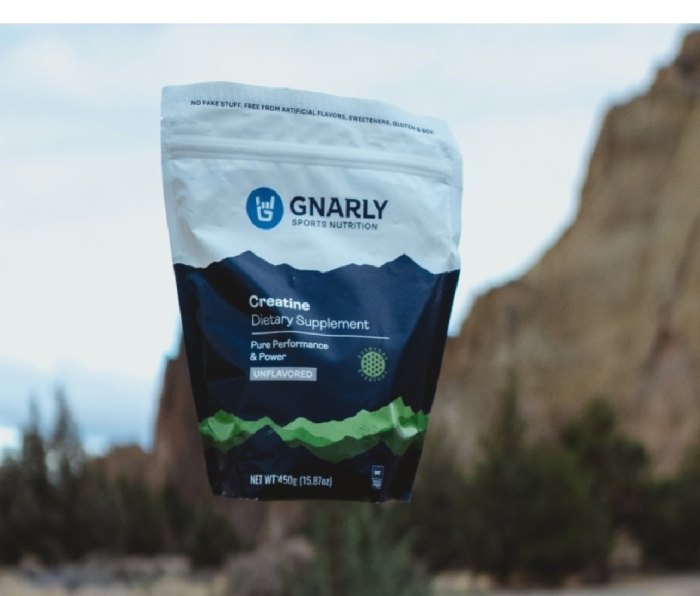Maintaining a balanced diet can be difficult for vegan athletes. Where non-vegan athletes depend on animal products for a bounty of easily absorbable protein, vitamins, and minerals, vegans need a more imaginative approach to amassing nutritional quotas for an active lifestyle. Experts agree - it is possible for athletes to eat appropriately without animal products. But is it realistic? And if so, how? The answer lies in the best vegan supplements for athletes.
"Anyone can be a healthy, successful athlete on a vegan diet," says Shannon O'Grady, a nutritionist with a Ph.D. in Nutritional Physiology and Chief Product Officer at Gnarly Nutrition – a natural supplement brand committed to total transparency of its products. "You just have to be a little more careful with your intake," she adds.
There are a few key factors that vegan athletes should consider when adopting a plant-based diet. And there are a few places where adding supplements can make a world of difference. Here, O'Grady outlines the fundamental challenges of a vegan diet for athletes, along with some techniques, choices, and brands to help vegans overcome them. — as Michael Misselwitz tells
Challenges of a vegan diet
Vegetable Proteins: One of the biggest obstacles to a healthy vegan diet is getting enough protein. Plant material generally offers less protein than animal material. In addition, the human body does not absorb the same amount of plant proteins as animal proteins. Soy and pea protein products offer a lot of nutritional value, but our bodies don't absorb all of the amino acids they contain.
Amino acids: Another difference between plant and animal proteins is the total amount of available essential amino acids—as well as leucine, or branched-chain amino acids. The bottom line is that plant-based proteins generally have lower levels. Soy and pea protein most closely provide the same amount of amino acids as animal proteins, but you'll definitely see lower leucine levels.
The solution in both cases is to eat more plant-based protein, but since plants take up a lot of the volume on our plate and are higher in fiber, it can be difficult to get everything you need in meals. For this reason, dietary supplements can be very helpful, especially for athletes who need a lot of protein in their diet.
Vitamin B12 and Iron: These two nutrients are also significantly less abundant in plant products. There is also an absorption issue with plant sources of iron, so it can be really difficult to get the amount the body needs to function healthily.
Essential fatty acids: The human body requires omega-3 fatty acids (ie essential fatty acids), most of which are found in animal foods. You can get lots of fatty acids like linoleic acid from things like flaxseeds, chia seeds, and walnuts, but the body's ability to convert them from eating plants into usable omega-3s like EPA and DHA is pretty poor. You would have to consume a ridiculous amount of flaxseed or chia seeds to get the equivalent amount of animal products recommended in our diet. Taking a plant-based DHA supplement, which usually comes from products containing seaweed, can give vegans an excellent boost.
Image courtesy
creatine: While not a necessary supplement for vegans, creatine can make a world of difference. The human body generally relies on animal sources to get its creatine. We can synthesize creatine from other amino acids, so vegans can get some that way, but their natural stores of creatine are usually relatively low. Vegan creatine supplements can provide a significant boost in certain performance measures – such as: These jumps can be as high as 20 percent — and sometimes even exceed what humans achieve from consuming animal products.
Trusted Dietary Supplements for Vegans
Plant material provides many nutrients, in many cases even more than animal material. For those areas where plants fall short, there are supplements that can make up the difference. With the right supplements, you can outperform even a standard American diet in many aspects of nutrition. Of course, not all vegan supplements are created equal, so it really comes down to researching, reading, and analyzing every label to make sure you're getting what you need.
A good safeguard to finding a quality product is NSF certification - an outside testing panel with a toxicology team that reviews products for safety. NSF (National Sanitation Foundation) tests products for individual ingredients to ensure you are actually getting the amount stated on the label per serving. They also test for micro-heavy metals and perform full pesticide screening.
Here are the vegan soups O'Grady greenlighted.
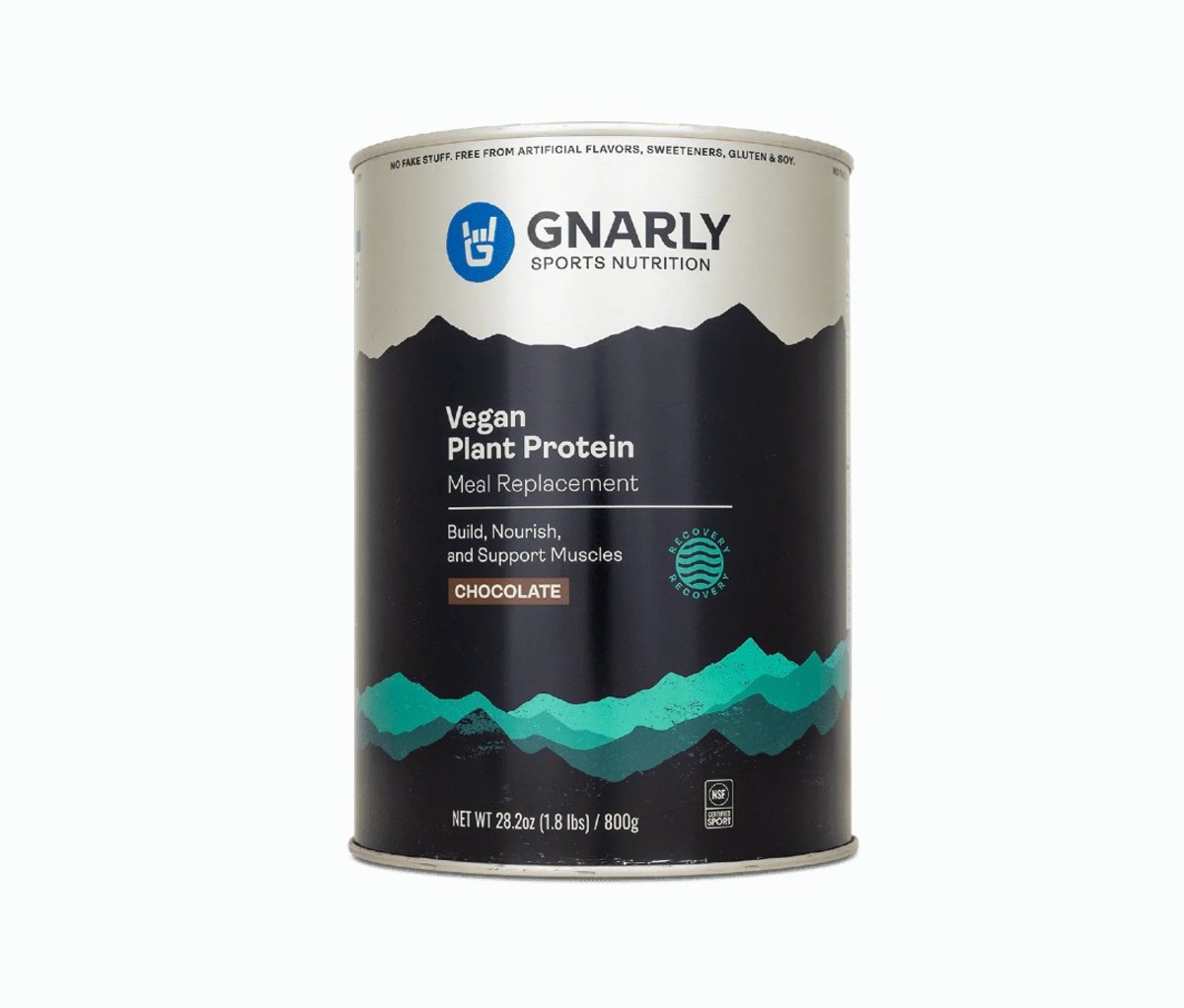 Image courtesy
Image courtesy
Gnarly Diet
With the exception of whey protein and collagen supplements, all Gnarly products are vegan. Our goal is to remove barriers to healthy eating for as many people as possible. For this reason we do not contain gluten or soy, since soy is a major allergen and gluten causes digestive problems for many people.
Gnarly only uses natural ingredients and we list ingredients and quantities on every label - so you know exactly what you're getting. A selection of Gnarly's products are NSF certified - and one day all products for sport will be NSF certified (meaning every product is tested for all 300 ingredients on the World Anti-Doping Agency's banned substance list). This is crucial for professional athletes, but also for consumers who do not want their product to be contaminated.
Gnarly has everything from proteins (vegan and non-vegan) to veggies and pre-workouts — plus a daily series designed to help with basic health rather than acute workouts. These are more subtle but really impact how you perform and generally feel as an athlete. Things like vitamin D, iron, B12, and a folate blend, as well as magnesium glycinate are important nutrients that help athletes stay healthy.
learn more
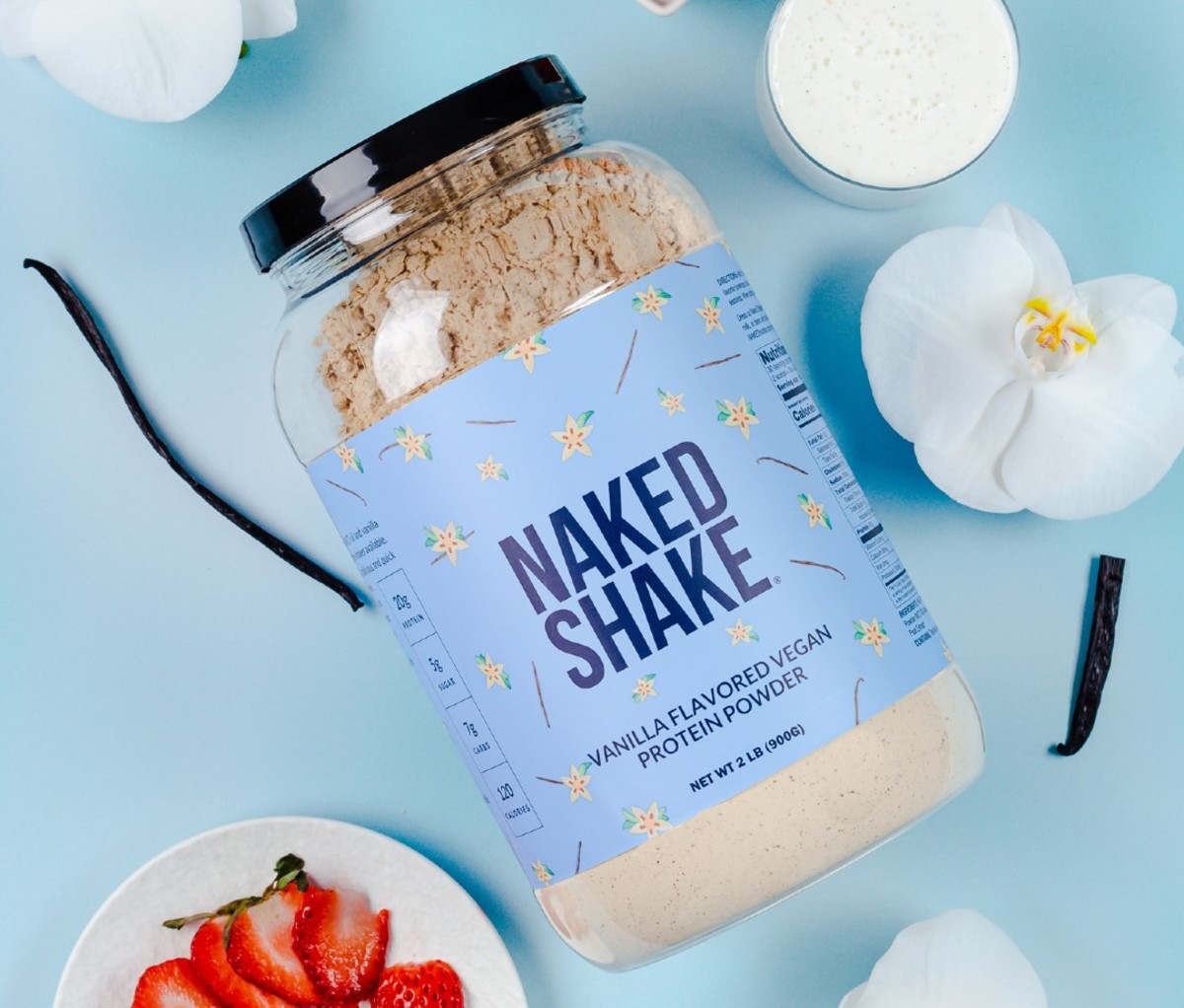 Image courtesy
Image courtesy
Naked Diet
I've been an admirer of Naked for a while. I love the fact that they use minimal ingredients and only include what you need. They provide information about what is in their products. For example, they list the amino acid content per serving on their protein powders.
Naked tries to make a wide range of products for everyone - some vegan and non-vegan, some sweet and unsweetened. You see a lot of companies these days that are into food pavilions, and it's good to see a company trying to make healthy products available to everyone.
Naked Shake is a great vegan protein powder option. An athlete needs a protein dose with at least 1.75 grams of leucine, although 2.5 grams is the amount your body needs to really kickstart muscle protein synthesis. Naked Shake is in that range, so it's a suitable protein for athletes. There's a bit of fat in it, which is good for recovery. It is lower in carbs, which is fine for most people. But if you're an endurance athlete using this for recovery, consider supplementing your carb intake. For more of a strength training workout where carbohydrate consumption may not be as high, Naked Shake is appropriate. You want at least 20 grams of protein in a serving — and this has just that.
learn more
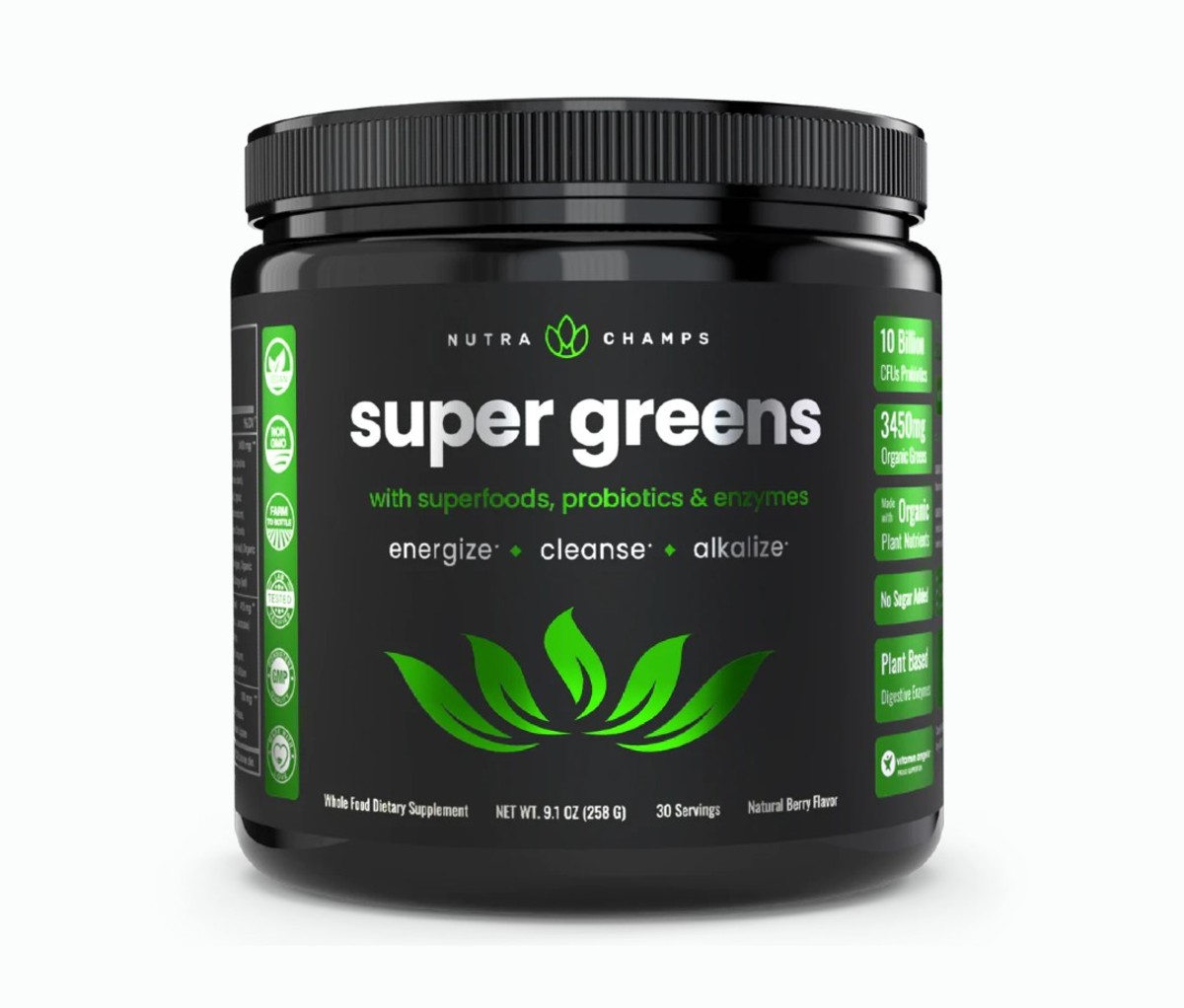 Image courtesy
Image courtesy
NutraChamps
NutraChamps' product line offers a huge selection of supplements - both vegan and non-vegan - and seems to prioritize transparent labeling, minimal fillers, and clean formulas. Many of their products are organic and exclude common allergens like soy and gluten. I also really like that they walk the consumer through the ingredient/supplement dates label on their website and explain the purpose of each nutrient and how/why it was included. They are also a good source of less available natural supplements such as rhodiola, biotin or Panex Korean ginseng.
learn more
Something to watch out for with “green” powders
Probably 95% of the green powder supplements on the market are made with "mixtures" - such as: B. an "antioxidant mix" or "green mix". Yes, these have a long list of ingredients, but no indication of the actual amount of each one. If a company does not list activities in a "mixture," then it does not need to test those activities, which is a way of circumventing FDA regulations for testing label claims. Products using this technique on their label might contain sufficient amounts of these ingredients - but if so, wouldn't they want to state that on the label? Without that, I as a consumer have no idea how much of any of those stated ingredients is actually in the product. This is to be considered with this product category. Look for companies that are transparent about the amount of each ingredient in the product. One such company is Athletic Greens.
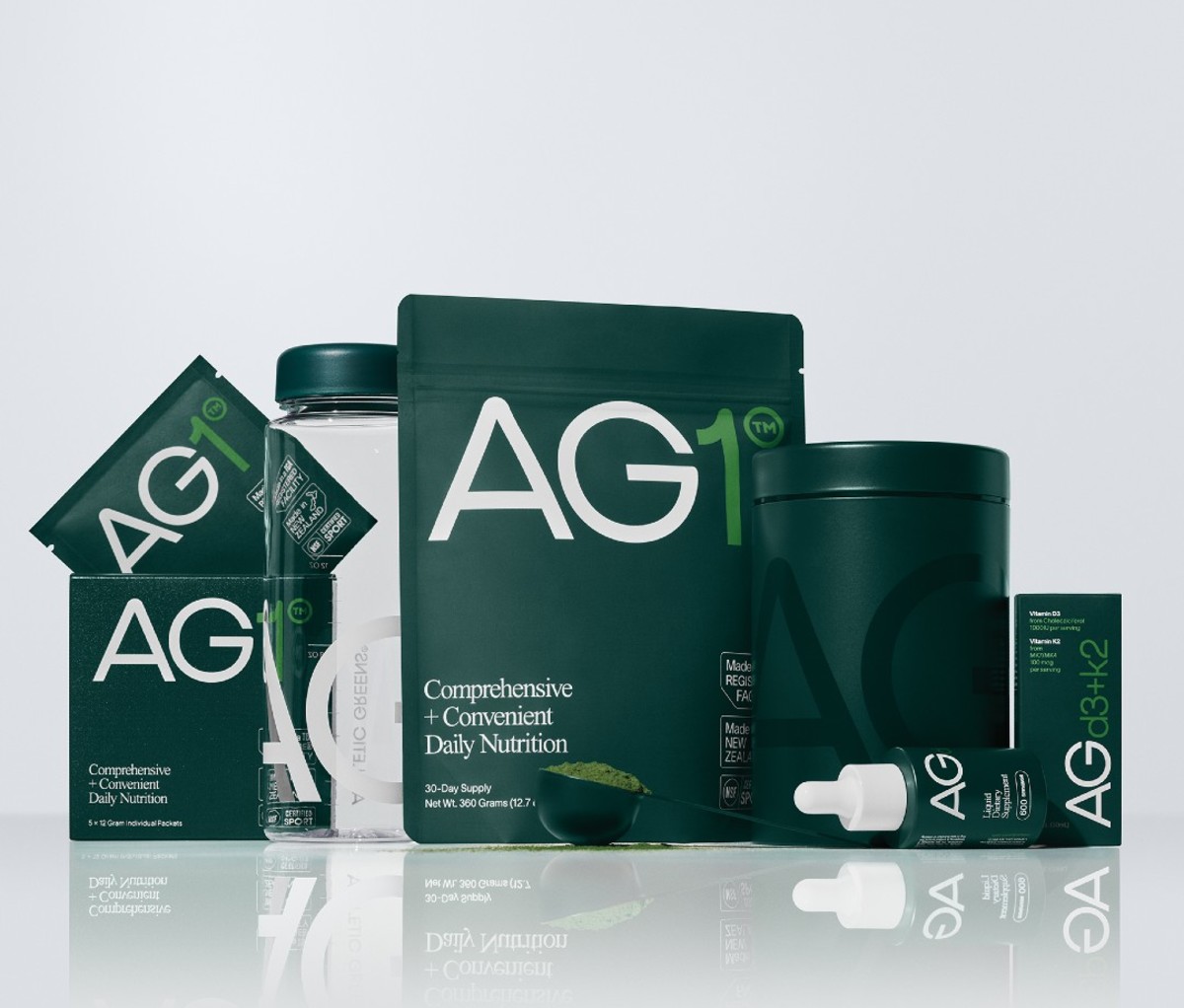 Image courtesy
Image courtesy
Athletic Greens AG1
One scoop of AG1 contains 75 whole food vitamins, minerals and ingredients targeted at supporting digestion, gut health, nervous system support, immunity, energy production, healthy aging, and hormonal and neural support. It's vegan-friendly, ensuring you're getting the nutrients you need to feel and perform at your best.
learn more
Subscribe to YouTube for access to exclusive gear videos, celebrity interviews and more!

